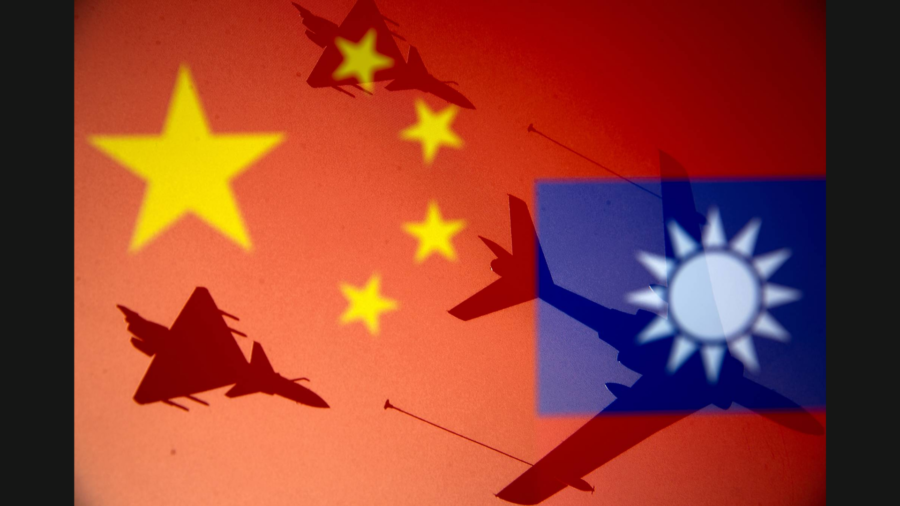Russia has a significant economic partner in China to help it fight Western sanctions as it wrecks devastation in Ukraine.
In December, China’s oil purchases from Russia overtook those from Saudi Arabia. Six days before the military assault began, Russia struck a multi-year agreement with China to export 100 million tonnes of coal for more than $20 billion. And, despite fears about plant illnesses, China decided to import Russian wheat just hours before Russia began attacking Ukraine.
China is once again moving close to Russia, as it did in the 1950s when Mao Zedong worked closely with Joseph Stalin and then Nikita Khrushchev. As the United States and the European Union have become apprehensive of China, Beijing’s leaders have decided that combining their massive economic might with Russia’s tremendous natural resources will provide them with the best geopolitical possibilities.
[fvplayer id=”178″]
Russia gains China’s support in NATO showdown over Ukraine
China’s economic unification with Russia is being signalled by recent agricultural and energy agreements.
“What happened up to now is only a beginning for both the Russian expansionism by force and the Chinese economic and financial support to Russia,” Shi Yinhong, a professor of international relations at Renmin University in Beijing, said in a text message. “This does not mean that China directly supports in any degree that expansionism — this only means that Beijing strongly feels the necessity to maintain and boost strategic partnership with Moscow.”
The US and the EU are hopeful that the penalties will force Russia to reassess its policy. However, at a press conference on Friday, Wang Wenbin, a spokeswoman for China’s foreign ministry, stated that China opposes the use of sanctions.
[fvplayer id=”179″]
China and Russia declare “no limits” to their plan to rival US power – BBC News
He stated, “Sanctions are never an effective approach to settle problems.” “I hope all parties involved will continue to strive to resolve the issue via communication and consultation.”
At the same time, Russia’s invasion of Ukraine has put China in an unpleasant diplomatic situation by infringing on the idea of national sovereignty, which the Chinese leaders hold sacred. While Chinese President Xi Jinping has not publicly condemned Russia, he may utilise the economic link between his country and its northern neighbour to push the Russians to resolve the problem fast.
On Friday, Mr. Xi and Russian President Vladimir V. Putin spoke by phone. Mr. Xi had voiced support for Russia in negotiating an agreement with Ukraine, according to an official Chinese statement, a posture that Mr. Putin has backed as well, providing Ukraine accepts his demands.
[fvplayer id=”181″]
How China could help Russia in the face of international sanctions
Much of China’s oil and food imports have hitherto been routed through seas monitored by US or Indian navies. China’s authorities have highlighted more reliance on Russia for critical supplies as they have focused recently on the risk of conflict, with military spending expanding four times faster than other government spending last year.
China and Russia share a nearly 2,700-mile border, and China has just surpassed the United States as Russia’s top source of imports and export destination.”Given the geopolitical difficulties, Russia is a very natural geopolitical partner,” according to Andy Mok, a senior research fellow at Beijing’s Center for China and Globalization.
[fvplayer id=”182″]
Argentina Turns To China-Russia To End ‘Dependency’ on US- Beijing Seals $8 Bn Nuclear Power Deal
The first round of Western sanctions against Russia focused on restricting technology exports and imposing financial penalties. To avoid injuring regular people and further stoking inflation, US officials have avoided targeting consumer items, agricultural products, and energy for the time being.
China is the world’s largest producer of electronics, machinery, and other manufactured items, which it has supplied to Russia in return for food and energy. In the year 2020, a train hauling coal passes through Yekaterinburg, Russia. In the last three years, China’s imports of Russian coal have more than doubled.
In the year 2020, a train hauling coal passes through Yekaterinburg, Russia. In the last three years, China’s imports of Russian coal have more than doubled. A statement that some Western officials feel is virtually a Sino-Russian nonaggression treaty has become a new cornerstone of Sino-Russian ties. Mr. Xi and Mr. Putin met before the opening ceremony of the Beijing Winter Olympics on Feb. 4, and the document was disseminated by Beijing and Moscow. The friendship between the two countries “knows no bounds,” according to the statement.
[fvplayer id=”183″]
China’s Foreign Ministry says it will maintain ‘normal’ trade relations with Russia and Ukraine
The two countries’ connections have been strengthening for years, and Mr. Putin appeared to have the confidence to shift troops and military equipment from Russia’s frontier with China and other parts of Siberia to Russia’s border with Ukraine and Belarus early this winter. Closer economic collaboration is also being ushered in as a result of the stronger partnership.
“The joint statement is powerful and has long-term implications for the new world order,” said Jean-Pierre Cabestan, a political science research professor at Hong Kong Baptist University.
Many ideals are shared by the Chinese and Russian regimes, including a dislike for sanctions imposed by the West on human-rights grounds. “The two parties are adamant that safeguarding democracy and human rights should not be used as a tool to impose pressure on other nations,” their February 4 agreement stated.
[fvplayer id=”184″]
Why Russia and China are strengthening relations
After the invasion of Ukraine’s Crimea area in 2014, the Obama administration placed sanctions on Russia, which China assisted Russia in evading.
However, it is unclear whether China will assist Russia in evading sanctions imposed this week. On Tuesday, the Biden administration announced penalties against Russia’s two largest financial institutions, as well as significant restrictions on innovative technologies that can be exported to Russia, in addition to previous steps. According to the government, the technological restrictions, when implemented in conjunction with partners, would ban about a fifth of Russian imports.
According to Martin Chorzempa, a senior fellow at the Peterson Institute for International Economics, Chinese enterprises that break the restrictions might face growing penalty from the US, including criminal and civil penalties. These companies may also be cut off from American technology and banking systems.
ZTE and Huawei, two Chinese companies forbidden from obtaining American technical exports, drew the attention of the US government in part due to their efforts to circumvent Iranian sanctions.
[fvplayer id=”185″]
Gravitas: What had China planned to do when Russia invaded Ukraine?
“The intriguing question is whether China will comply with this.” Mr. Chorzempa expressed his thoughts. He added that China has a rule that penalises enterprises that follow extraterritorial sanctions imposed by countries such as the United States, all of which “may put companies in a genuine bind.”
“They’re in problems with the US if they don’t cooperate with the US, but they could also face fines in China if they don’t comply with China,” he said.
Mr. Chorzempa warned that collecting fines from corporations that refuse to pay and monitoring whether businesses follow the regulations could be tough. “It’s already tough to monitor the things that are already controlled, and expanding that list will make it even more difficult to verify what’s going to Russia,” he said.
[fvplayer id=”186″]
Andrea Kendall-Taylor, former deputy national intel officer for Russia and Eurasia, joins Shep Smith to report on the challenges of sanctioning Russia and dealing with China at the same time
A growing source of concern. Russia’s invasion on Ukraine might trigger price rises in gasoline and food, as well as frighten investors. Supply disruptions and economic penalties would cause significant economic damage in some countries and industries while going unnoticed in others.
Export limits imposed by the Biden administration apply to goods made in any country that use American technology, including chipmakers such as Taiwan Semiconductor Manufacturing Company and Shanghai-based Semiconductor Manufacturing Industry Corporation.
According to Gabriel Wildau, managing director of consultancy firm Teneo, both of those companies continue to rely on the United States for certain components and manufacturing technology. SMIC and other Chinese businesses might be shut off from US technology if they continue to supply Russia, a punishment similar to the one that devastated Huawei. Taiwan Semiconductor stated on Friday that it was committed to following the export limits.
[fvplayer id=”187″]
Russian chess grandmaster Garry Kasparov joins Shep Smith to discuss the protests in the streets of Russia and what this says about Putin’s grasp on power
“If Beijing is viewed as Moscow’s enabler, pressure will rise in the U.S. Congress to extend these restrictions,” Mr. Wildau wrote in a note to clients. Beijing would also face the risk that other major technology exporters, like Japan, South Korea and the Netherlands, “would adopt Washington’s tougher line,” he said.
Continued lending to Russia could put China’s state-owned banks in jeopardy. The renminbi and the ruble have been used to settle more of China’s and Russia’s trade. Beijing has also been attempting to develop the digital use of its currency as a substitute for the dollar, which might aid Russia in mitigating the impact of financial sanctions.
However, Chinese banks remain heavily reliant on the US dollar. Mr. Wildau suggested that, while major Chinese banks appear to be withdrawing their financing for Russia, Beijing could choose to help Russia through smaller state-owned banks that don’t do much foreign business that needs the use of the dollar.
[fvplayer id=”188″]
Hannity: This is Putin’s greatest vulnerability
Financial sanctions imposed by the United States have hit China, Russia, Iran, Venezuela, and other nations, underscoring the need for more commerce and investment in currencies other than the dollar, according to Mr. Mok.
Even if Chinese firms violate US laws, Beijing is unlikely to make it public. Despite its stated opposition to sanctions, China punishes trading partners that have offended it in some way on a frequent basis. To prevent clear infractions of international trade norms, it does it by sending unannounced orders to customs officials.
After Lithuania agreed to allow Taiwan operate an office there, China imposed a surprise trade ban on Lithuania. Lithuania, a former Soviet country that has embraced freedom and joined the North Atlantic Treaty Organization, has a tense relationship with Russia.
[fvplayer id=”189″]
The West depicts Vladimir Putin as a mercurial leader prone to delusions. How true is this assessment? What is the secret behind Putin’s foreign policy successes? Palki Sharma tells you what makes Putin tick?
Over a territorial dispute in 2010, China secretly froze imports of barley, coal, wine, and a variety of other goods from Australia for more than a year, and stopped exports of critical rare earth metals to Japan for two months.
Beijing and Mr. Xi both face dangers as a result of China’s embrace of Russia on energy, food, and financial issues. In Shanghai, the Yangshan port. When a country offends Beijing, customs officials at Chinese ports and airports receive unpublished directives to restrict or block trade.
In Shanghai, the Yangshan port. When a country offends Beijing, customs officials at Chinese ports and airports receive unpublished directives to restrict or block trade. China has massive and quickly growing trade surpluses with the US and European countries. If China is seen as facilitating Mr. Putin’s aggressive moves, support for tariffs or other technology and trade restrictions could grow in the West.
Further trade obstacles may begin to wean Western corporations and consumers away from their reliance on Chinese manufacturers, which have helped China create tens of millions of jobs. Mr. Xi has worked hard in recent years to minimise China’s dependency on other countries by subsidising enterprises to produce a nearly entire spectrum of industrial goods domestically, anticipating such a danger.
He instructed China to “tighten the international industrial chain’s dependence on our country” in a speech in 2020, “so as to establish a powerful countermeasure and deterrent capabilities against external attempts to sever our supply networks.”
Also read;
Taiwanese airspace breach by China- Is Taiwan the next scapegoat after Ukraine?







Add Comment